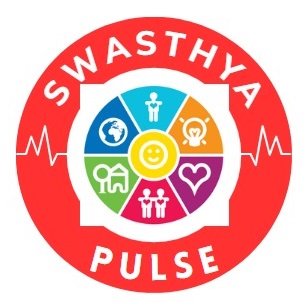Abdominal pain—also called tummy or stomach pain—can occur anywhere between the ribs and the pelvis. This area contains many important organs like the stomach, liver, intestines, kidneys, reproductive organs, and major blood vessels.
While some causes are serious, such as appendicitis or complications during pregnancy, most cases are mild and resolve on their own.
When to See a Doctor
Seek immediate medical help if you have:
Severe or persistent pain
Pain with vomiting or shortness of breath
Vomiting blood or blood in your stool or urine
Pain with fever, sweating, or pale, clammy skin
Pain with vaginal bleeding (if pregnant)
Pain in the scrotum (if male)
Chest, neck, or shoulder pain along with abdominal pain
Difficulty passing urine, gas, or stool
Any pain that concerns you
Common Symptoms
Abdominal pain can:
Be sharp, dull, cramping, or stabbing
Come and go (waves) or stay constant
Cause vomiting or nausea
Make you restless or force you to stay still
Range from mild discomfort to emergency-level pain
What Causes Abdominal Pain?
Common causes include:
Appendicitis
Gallstones
Ulcers
Infections (e.g., UTI, gastroenteritis)
Kidney or bladder problems
Pregnancy-related issues
Less obvious causes may include:
Heart attack or pneumonia
Shingles (a skin rash)
Muscle strain
Pelvic issues (e.g., period pain, endometriosis)
Sometimes, pain is referred from other body parts, making diagnosis difficult.
Diagnosis: What Doctors Ask
Doctors will ask questions like:
Where is the pain?
(Right side? Center? Back? Groin?)
When did it start?
Acute: less than 1–2 days
Persistent: more than 2 days
Chronic: more than 2 weeks
How bad is it?
Rated on a scale of 1 to 10
Is the pain constant or in waves?
Waves (colicky): usually bowel or urinary tract
Constant: ulcers, inflammation, or infection
Have you had this pain before?
Gallstones, kidney stones, and period pain often recur
What happened before the pain started?
Recent injuries, medications, or heavy alcohol use may trigger pain
Are there other symptoms?
Vomiting, blood in urine/stool, difficulty urinating, fever, etc.
History of surgery or radiation?
Could cause bowel blockages or internal scarring
Tests and Examinations
If needed, your doctor may suggest:
Physical exams: rectal, pelvic, scrotal checks
Blood tests: infection, bleeding, organ function
Urine tests: infection, blood (stones)
Pregnancy test (for women)
ECG: rule out heart issues
Scans: X-ray, ultrasound, or CT
Endoscopy: a camera to examine inside organs
Some test results may take days. Your doctor will explain them when available.
Treatment for Abdominal Pain
Your treatment depends on the cause. Options may include:
Pain relief (e.g., paracetamol)
Fluids (especially if dehydrated)
Anti-nausea medication
Fasting (temporarily avoiding food/drink)
Hospital care or surgery (in serious cases)
At-Home Care Tips
If your doctor says it’s safe to recover at home:
Use a warm pack or hot water bottle on your abdomen
Take warm baths (don’t burn yourself!)
Drink clear fluids (like water or broth)
Avoid caffeine and alcohol
Eat bland foods: rice, toast, crackers, bananas
Rest as much as possible
Try over-the-counter antacids
Use paracetamol for mild pain (avoid aspirin/NSAIDs unless prescribed)


